 Mimio, interactive teaching technologies provider, began in 1997 with a singular philosophy: to make learning more engaging for students with the help of technology. Jaemes Shanley, Director of Sales – Asia Pacific & Latin America, Mimio, shares his insight on the changing market dynamics of education technology all across the world in conversation with Dr Ravi Gupta. Excerpts:
Mimio, interactive teaching technologies provider, began in 1997 with a singular philosophy: to make learning more engaging for students with the help of technology. Jaemes Shanley, Director of Sales – Asia Pacific & Latin America, Mimio, shares his insight on the changing market dynamics of education technology all across the world in conversation with Dr Ravi Gupta. Excerpts:
Please provide us an overview of latest development by Mimio?
Today projectors are the most significant for our business. We are entering into a projector business for the first time by launching Mimio Interactive Projector, which can convert any surface into an interactive board. We are also launching MimioMobile application that will be available in mobile app stores. Adding these components will expand our domain.
MimioMobile app on iPads helps students in interacting with a lesson that is displayed on the IWB (interactive whiteboard), if the teacher’s classroom computer has the MimioMobile licence on it. It also empowers shared learning, discussion, collaboration and assessments, and makes all of them easier.
What is your view on the global market for education technology?
There is an enormous potential in India, but it is harder when you have to go out and fight customer by customer rather than just having one big customer. Globally, this is a challenging time for education technology.
It is a challenging market everywhere, but still there are a lot of markets that are growing like some in the Middle East, Latin America, Russia, and China, etc. It is not as easy ride, as it was four years ago
Why is it challenging globally?
World’s big markets like North America and Europe are affected by government budgetary crisis, as it has resulted in their spending cuts. In North America, particularly in the USA, the majority of education funding comes from the state governments instead of the federal government. The state governments, by law in America, cannot run in deficits. Therefore, tax rate declined during the economic slowdown, and they were forced to cut budgets everywhere, including education. There were major layoffs of teachers, and schools that were not performing well economically were shut down.
Europe’s condition changed even more drastically. Two years ago UK dissolved Becta that promoted the use of technology in schools in the country. The government cut fundings and education became part of the cut. Almost every country, including Italy, Spain, Portugal, has been affected by the crisis. It is a challenging market everywhere, but still there are a lot of markets that are growing like the Middle East, Latin America, Russia, China, etc. It is not as easy a ride, as it was four years ago.
Japan is much slower in terms of adopting technology However, Korea is much more aggressive in comparison to Japan.
What is your go-to-market strategy for India?
We have presence in India since 2000 thorugh master distributors In 2004, appointed Plus Business Machine as our master distributor. Now we have Green Sources Pvt Ltd since 2011 and we continue to work with them. We have engaged a lot of key players in the market called Mimio Authorised Resellers (MAR). Due to our exclusive partnership with Educomp for K-12, we churned out a lot of business in those years. Then other companies stood out and things became more challenging.
we








 By Joe Chang,
By Joe Chang,
 In India only 10 percent of fresh graduates are employable, as the majority lacks industry specific skills. We need to emphasise on vocational training for target groups like school dropouts, women and socially backward
In India only 10 percent of fresh graduates are employable, as the majority lacks industry specific skills. We need to emphasise on vocational training for target groups like school dropouts, women and socially backward
 TextIndia has become one of the major hubs for knowledge outsourcing and skill development. The quality of skill enhancement programmes, their variety and delivery has become major advantage for the world. It is only in India that you can find skill development enhancement solution for any need. One of the most sought after course is the algorithm training programme. Another emerging area of skill development is that of cyber security, given the rising cyber criminal activities.
TextIndia has become one of the major hubs for knowledge outsourcing and skill development. The quality of skill enhancement programmes, their variety and delivery has become major advantage for the world. It is only in India that you can find skill development enhancement solution for any need. One of the most sought after course is the algorithm training programme. Another emerging area of skill development is that of cyber security, given the rising cyber criminal activities.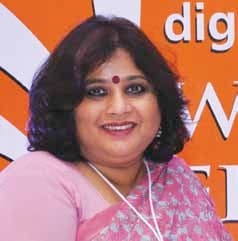
 Recently, the Government of Andhra Pradesh started Rajiv Yuva Kiranalu scheme. It aims to build job specific skills among the unemployed, and place them in appropriate private job sectors like construction. However, it is essential to make people aware about the different vocational skills and their learning centres.
Recently, the Government of Andhra Pradesh started Rajiv Yuva Kiranalu scheme. It aims to build job specific skills among the unemployed, and place them in appropriate private job sectors like construction. However, it is essential to make people aware about the different vocational skills and their learning centres.
 Globarena Technologies has 13 years of experience in providing education services.
Globarena Technologies has 13 years of experience in providing education services.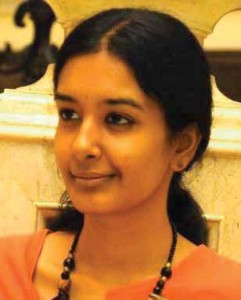 By Lakshmi Vishwanathan, Next Education India Pvt Ltd
By Lakshmi Vishwanathan, Next Education India Pvt Ltd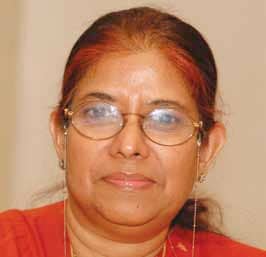 Graduates now require skills like critical thinking, communication, collaboration and creativity that are documented in the approach paper of the plan document in the 12th Plan. Special emphasis on verbal communication skills, especially English, will help in bringing employability. We need an interactive and collective arrangement
Graduates now require skills like critical thinking, communication, collaboration and creativity that are documented in the approach paper of the plan document in the 12th Plan. Special emphasis on verbal communication skills, especially English, will help in bringing employability. We need an interactive and collective arrangement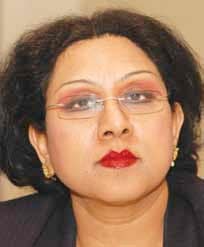 The sectoral approach is that we need to scale quality capacity among the faculty, infrastructure, students, and the ecosystem, at large. Employability at the entry-level, and research and development at the higher level, both are required. While the industry has gone on its own journey, we have not made our efforts to bridge the misconception of supply and demand requirement. So the supply side has actually perceived the industry requirement and moved on its own journey.
The sectoral approach is that we need to scale quality capacity among the faculty, infrastructure, students, and the ecosystem, at large. Employability at the entry-level, and research and development at the higher level, both are required. While the industry has gone on its own journey, we have not made our efforts to bridge the misconception of supply and demand requirement. So the supply side has actually perceived the industry requirement and moved on its own journey.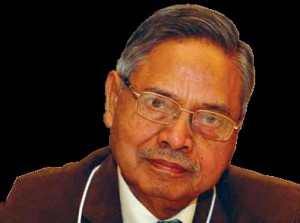 The government is not solely responsible for doing everything. There are many examples across the world where education, health, transport and many important sectors are into private domains. It is good to involve private sector, both at the school level and higher education level in education, as it increases the competitiveness. When we say that education is the backbone, it is about inculcating democratic and secular values among the citizens.
The government is not solely responsible for doing everything. There are many examples across the world where education, health, transport and many important sectors are into private domains. It is good to involve private sector, both at the school level and higher education level in education, as it increases the competitiveness. When we say that education is the backbone, it is about inculcating democratic and secular values among the citizens. Industry and academia are not working together. We are facing this issue that after four years of engineering, the companies come to us and say that their mindset is different, and they want something else from the students. We made industry-specific learning as a part of our curriculum. There are some industryrelevant curriculums, which we have designed in consultation with major companies.
Industry and academia are not working together. We are facing this issue that after four years of engineering, the companies come to us and say that their mindset is different, and they want something else from the students. We made industry-specific learning as a part of our curriculum. There are some industryrelevant curriculums, which we have designed in consultation with major companies.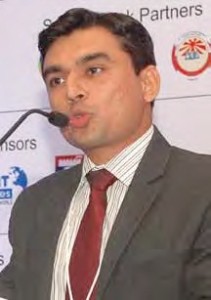 We have kept the concept of corporate mentor at our institute, whereby we assign 15 students to a corporate and the mentors groom students. They take all the responsibility, starting from the academics to placements and teach business etiquette to students. We are also providing vocational courses to our students as corporates need students with basic knowledge of a particular industry. We must emphasise on practical knowledge and then the theory.
We have kept the concept of corporate mentor at our institute, whereby we assign 15 students to a corporate and the mentors groom students. They take all the responsibility, starting from the academics to placements and teach business etiquette to students. We are also providing vocational courses to our students as corporates need students with basic knowledge of a particular industry. We must emphasise on practical knowledge and then the theory.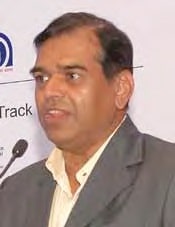 During the second year of MBA course, we talk to the industry people, and they give curriculum to us, which has to be added to the syllabus. Retail giant, Shoppers Stop, approached us and said that they need 900 employees every year. Attrition rate is high, but we have to give extensive training to graduates for one year to make them employable. They suggested us to give sixmonth training in the last year of graduation for students who want to join the retail industry.
During the second year of MBA course, we talk to the industry people, and they give curriculum to us, which has to be added to the syllabus. Retail giant, Shoppers Stop, approached us and said that they need 900 employees every year. Attrition rate is high, but we have to give extensive training to graduates for one year to make them employable. They suggested us to give sixmonth training in the last year of graduation for students who want to join the retail industry.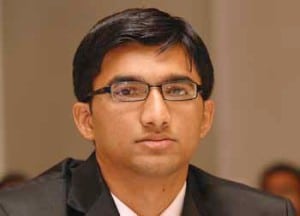 Gujarat Knowledge Society (GKS) is a revolutionary measure of the Gujarat Government, undertaken in 2008, to bridge the gap between the industry and academia. GKS believes in empowering the youth. We incorporate training centres with the help of various industries, where quality education is imparted to the candidates. GKS has already registered with some of the finest public and private institutions in the country like NIIT, HCL, etc. The students get great employment opportunities along with enhancement of the skills and knowledge.
Gujarat Knowledge Society (GKS) is a revolutionary measure of the Gujarat Government, undertaken in 2008, to bridge the gap between the industry and academia. GKS believes in empowering the youth. We incorporate training centres with the help of various industries, where quality education is imparted to the candidates. GKS has already registered with some of the finest public and private institutions in the country like NIIT, HCL, etc. The students get great employment opportunities along with enhancement of the skills and knowledge.
 By Dr Haresh Tank,
By Dr Haresh Tank,

 Prof U B Desai,
Prof U B Desai,
 Prof H A Ranganath,
Prof H A Ranganath, Prof V Panduranga Rao,
Prof V Panduranga Rao, Gagan Kumar Dhal,
Gagan Kumar Dhal, Prof V S Rao,
Prof V S Rao, Prof Dr G Tulasi Ram Das,
Prof Dr G Tulasi Ram Das, Dr Sanjiv Tokekar,
Dr Sanjiv Tokekar, Dr G Viswanathan,
Dr G Viswanathan, Dr Akshai Aggarwal,
Dr Akshai Aggarwal, Lokesh Mehra,
Lokesh Mehra, Prof S Ramesh Babu,
Prof S Ramesh Babu,











